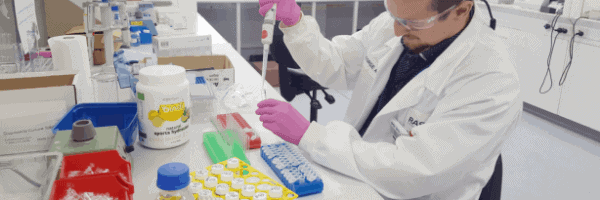In recent weeks there has been plenty of discussion regarding drugs in sport, and a common theme is the issue regarding safety of supplements. As an athlete myself and as the director of a sports nutrition company, I don’t propose to have all the answers to the issues that have arisen. I am however well placed to be part of the conversation and feel it’s something we need to be well versed in as an industry and as athletes too.
Firstly, let’s be clear here. When it comes to supplement contamination, we are not talking systematic or planned doping. That is in another realm altogether and I believe that clean sport matters, so that we can all compete on a level playing field and therefore success is a direct result of hard work and a respect for the rules.
That aside, there are occasions where athletes with positive tests have pointed to supplement contamination as the cause, and in some cases, this has been proven. Basically, supplements can be contaminated, and it can occur in two ways, either intentionally or accidentally.
Intentional contamination? Are you kidding me?!
Jeff Novitzky is a sports doping expert who investigated Lance Armstrong and he told ABC’s Hack last year: “A lot of these manufacturers in the first and second run of their product would deliberately spike their supplements with prohibited and sometimes illegal substances. For the first few months of that supplement being on the market the consumer and end user would really notice a difference from using that supplement, whether it be muscle building if it was a steroid, or energy if there was a stimulant.”
Is the industry regulated?
These questions do turn us to the issue of regulation in the sports supplement industry. There is no testing done by regulatory authorities of the products that end up on our shelves, and so the testing is left up to companies themselves or up to individual athletes (usually at the point where they are trying to prove their innocence).
A study done in 2016 of common supplements available for purchase in Australia found that 1 in 5 of the tested products contained one or more substances banned in sport. Adding to that, it’s estimated that less than 1% of supplements have been voluntarily tested. Bindi is amongst that 1%, and interestingly, it is extremely rare for testing facilities such as HASTA to find positive results in the products that are presented for testing; essentially it is the clean brands that are putting themselves forward for this process in the first place.
It is impossible to test every single product and every single tub to provide a guarantee it is clean, but essentially by batch testing we are substantiating and validating our processes, from raw material through to manufacturing which ensures our products are coming through the safest pathway possible.
So, what does ASADA recommend to athletes? Here’s what they say:
ASADA’s long standing advice is that no supplement is safe to use, and athletes should not risk their careers by using supplements.
However, ASADA recognises that there may be circumstances where sports dieticians recommend supplements, or where athletes use supplements regardless of the risk. test
In these circumstances, ASADA’s advice is that athletes should only use supplements which have been screened for prohibited substances by an independent company, such as HASTA or Informed Sport. Supplements screened by these companies cannot offer a 100% guarantee that an athlete will not test positive, but they are significantly less risky than other supplements. Although batch tested products are the lowest risk supplements, they do not provide a guarantee against testing positive.
ASADA guidelines: All athletes should be aware of the three A’s for protecting a sporting career:
1. Be Aware:
- Be aware of what you are taking and what are the risks
2. Do Your Analysis:
- Has it been tested?
- Is it safe?
- Is it effective in improving performance?
- Is it necessary?
3. Take Steps to Avoid:
- From ASADA’s perspective, the avoidance of supplement products is the safest path for athletes to follow, but for those who choose to take supplements, here are some things to avoid:
- Supplements made in China, India or the USA.
- Pre-workout, weight-loss and muscle-building products, as they can be at higher risk of contamination with a prohibited substance.
There are lot of issues at play here, but as I see it there are some strong take home messages. Firstly, you as an athlete must be informed and aware and be entirely responsible for what goes into your body. Remember that while we are focusing on supplements here, every single thing you ingest whether it is food or drink has the potential for contamination.
Secondly, only use what you require and what will benefit your performance within ASADA’s guidelines. If you’re not sure, book an appointment with a sports dietitian and get a clear plan in place.
And finally, choose products that are manufactured in Australia and that have no artificial ingredients or added chemicals. Check your labels and know what you are using. If your products are also batch tested, then you are at significantly lower risk of accidental contamination.
If you have any questions arising from this article, you can read more on our own testing process here.
For full ASADA guidelines click here.
Also, if you would like to check out our batch testing results to see what HASTA provides us (they check for over 200 WADA banned substances) then click here for the certificate.
Happy training,
Belinda
